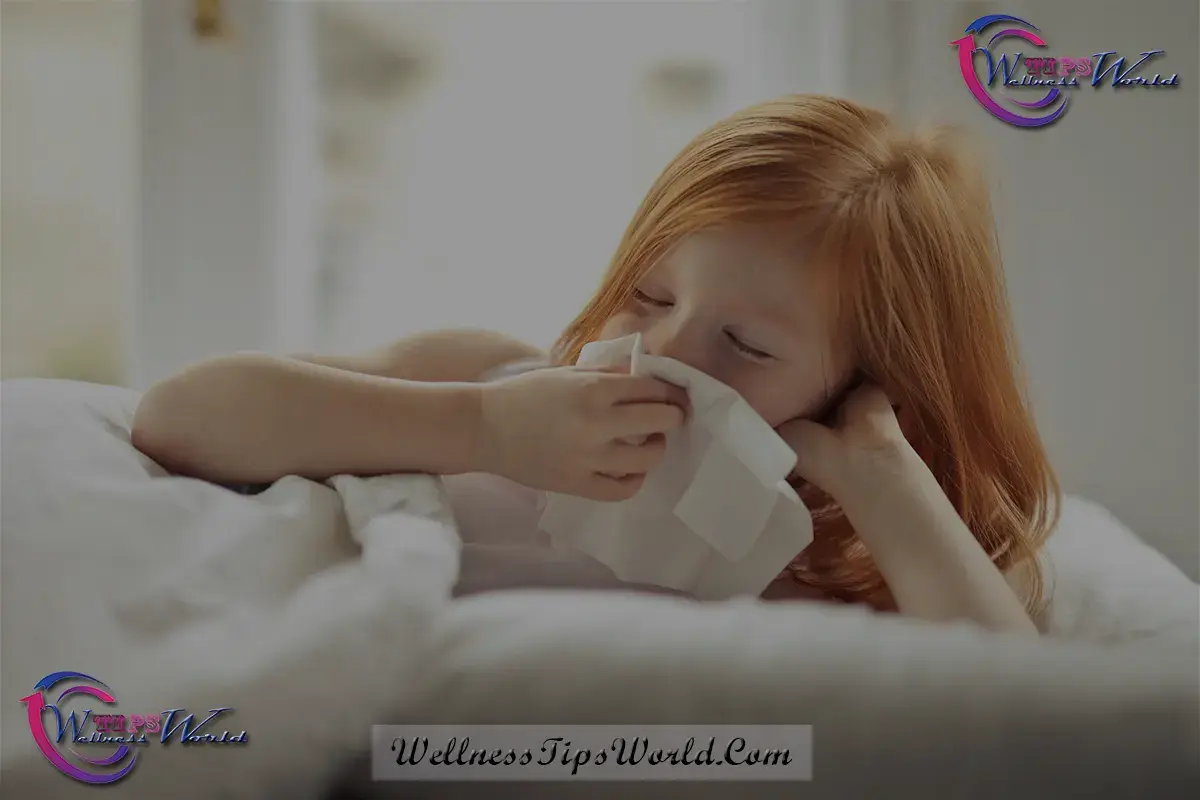Tired of Allergies? Simple Lifestyle Changes That Can Make a Big Difference
-
186
- 25 Mar, 2025

Allergies can turn even the most beautiful days into an uncomfortable experience. Whether it’s the itchy eyes, constant sneezing, or the never-ending runny nose, managing allergies can feel like an uphill battle. But what if there were simple lifestyle changes you could make that could help reduce allergy symptoms and improve your quality of life? If you're tired of relying on medications that only provide temporary relief, it's time to explore natural solutions.
In this article, we’ll discuss lifestyle changes that can make a significant difference in the way you manage allergies. From improving your indoor environment to adjusting your diet, these practical tips will help you tackle allergies head-on and take back control of your health.
What You Will Learn
In this article, you will discover:
- How simple dietary changes can reduce allergy symptoms
- The importance of keeping your home environment allergen-free
- How exercise can strengthen your immune system and reduce allergy symptoms
- The impact of reducing stress on your allergic reactions
- How sleep hygiene can play a role in managing allergies
By incorporating these changes into your daily routine, you can find long-lasting relief from allergies and lead a healthier, more comfortable life.
1. Make Dietary Changes to Boost Your Immune System
What you eat can have a significant impact on how your body responds to allergens. Certain foods and nutrients can support your immune system, making it less likely to overreact to allergens like pollen, dust, and pet dander.
Best Foods to Fight Allergies
Vitamin C-Rich Foods – Vitamin C is a powerful immune booster and natural antihistamine that can help reduce allergy symptoms like sneezing and runny nose. Include more citrus fruits, strawberries, bell peppers, and broccoli in your diet to get a steady supply of vitamin C.
Omega-3 Fatty Acids – Omega-3 fatty acids, found in fatty fish like salmon, walnuts, and flaxseeds, have anti-inflammatory properties that can help reduce allergic reactions. These healthy fats can also strengthen your immune system and help your body fight off allergens more effectively.
Probiotic-Rich Foods – Gut health plays a significant role in regulating your immune system. Probiotics, found in yogurt, kefir, sauerkraut, and kimchi, can promote a healthy balance of gut bacteria and may reduce inflammation caused by allergies.
Foods to Avoid
Certain foods may worsen allergy symptoms or cause inflammation in the body. Consider reducing your intake of:
- Refined foods packed with excessive sugar and harmful fats.
- Dairy products, which can sometimes trigger mucus production
- Alcohol, which can cause dehydration and aggravate symptoms
By making these dietary adjustments, you can strengthen your immune system and minimize your allergic reactions.
2. Improve Your Home Environment
Your home can either help or hinder your efforts to manage allergies. By making a few simple changes, you can create an environment that is free of allergens and more conducive to better health.
Regular Cleaning to Reduce Allergens
Common household allergens include dust, pet dander, and mold. To keep these at bay:
- Vacuum regularly using a HEPA filter to trap dust and allergens.
- Wash bed linens and pillows at least once a week in hot water to kill dust mites and other allergens.
- Clean carpets and upholstery frequently, as they can trap dust and dander.
Control Humidity
Excessive humidity can promote the development of mold and dust mites. Keeping the humidity in your home below 50% can help control these allergens. Use a dehumidifier in damp areas such as bathrooms or basements to reduce mold growth.
Air Purification
Investing in an air purifier with a HEPA filter can help clean the air in your home, trapping pollen, pet dander, and other airborne allergens. Consider placing an air purifier in the bedroom, where you spend a significant amount of time.
Keep Windows Closed During Pollen Season
During peak pollen season, it’s important to keep your windows closed, especially in the early morning when pollen levels are highest. If you need fresh air, use an air conditioner or air purifier instead.
3. Exercise Regularly to Strengthen Your Immune System
It might seem counterintuitive to exercise when you're struggling with allergy symptoms, but regular physical activity can actually help reduce the severity of allergies in the long term.
Benefits of Exercise for Allergies
Boosts immune function: Regular exercise helps strengthen your immune system, making your body less likely to overreact to allergens.
Reduces inflammation: Exercise has anti-inflammatory effects, which can help reduce allergy symptoms like nasal congestion and itchy eyes.
Improves lung function: Cardiovascular exercise, like running or cycling, can help improve respiratory health and make it easier to breathe when you’re exposed to allergens.
Best Types of Exercise
Walking and Jogging: These are low-impact activities that can improve your fitness and immune health without putting too much strain on your body.
Yoga: Yoga can help reduce stress and improve your overall well-being. Certain poses can even help open up your airways, easing respiratory discomfort.
Just make sure to exercise indoors on days when pollen levels are high or during allergy season to avoid exposure to outdoor allergens.
4. Reduce Stress to Minimize Allergy Symptoms
Stress can exacerbate allergy symptoms by affecting your immune system and making your body more reactive to allergens. Finding ways to manage stress can significantly improve how you respond to allergens.
How Stress Affects Allergies
When you’re stressed, your body releases stress hormones, which can trigger inflammation and an overactive immune response. This makes your body more sensitive to allergens, leading to more severe symptoms.
Stress-Reduction Techniques
Meditation and Deep Breathing: These practices can help calm your mind and reduce the body’s stress response. Consider practicing mindfulness meditation for 10-15 minutes daily.
Progressive Muscle Relaxation: This technique involves tensing and relaxing different muscle groups to release physical tension and reduce stress.
Regular Exercise: As mentioned earlier, exercise is a great way to relieve stress and improve your overall health.
By incorporating these stress-reducing techniques into your routine, you can improve your body’s ability to handle allergens and reduce allergy symptoms.
5. Improve Your Sleep Hygiene
Getting quality sleep is essential for maintaining a healthy immune system. When you’re sleep-deprived, your body’s ability to fight off allergens and infections is compromised.
How Poor Sleep Affects Allergies
Lack of sleep can increase inflammation, weaken your immune system, and make you more susceptible to allergic reactions. Additionally, when you're not well-rested, your body may not effectively manage allergy symptoms like congestion and sneezing.
Tips for Better Sleep Hygiene
- Keep your bedroom allergen-free by regularly cleaning and using an air purifier.
- Transform your bedroom into a sleep-friendly space by ensuring it's dark, quiet, and cool.
- Set a consistent sleep routine to enhance sleep quality, aiming for 7-9 hours each night.
- Avoid caffeine and heavy meals close to bedtime to ensure a restful night’s sleep.
Small Changes, Big Results
If you’re tired of dealing with the constant discomfort of allergies, making these simple lifestyle changes can make a significant difference in managing your symptoms. By focusing on dietary improvements, creating an allergen-free home, regular exercise, stress management, and sleep hygiene, you can significantly reduce the impact of allergies on your daily life.
These changes may take time to show results, but with consistency, you’ll find that your immune system becomes stronger and your body more resilient to allergens. The best part is that these adjustments not only help alleviate allergies but also promote overall health and well-being.










